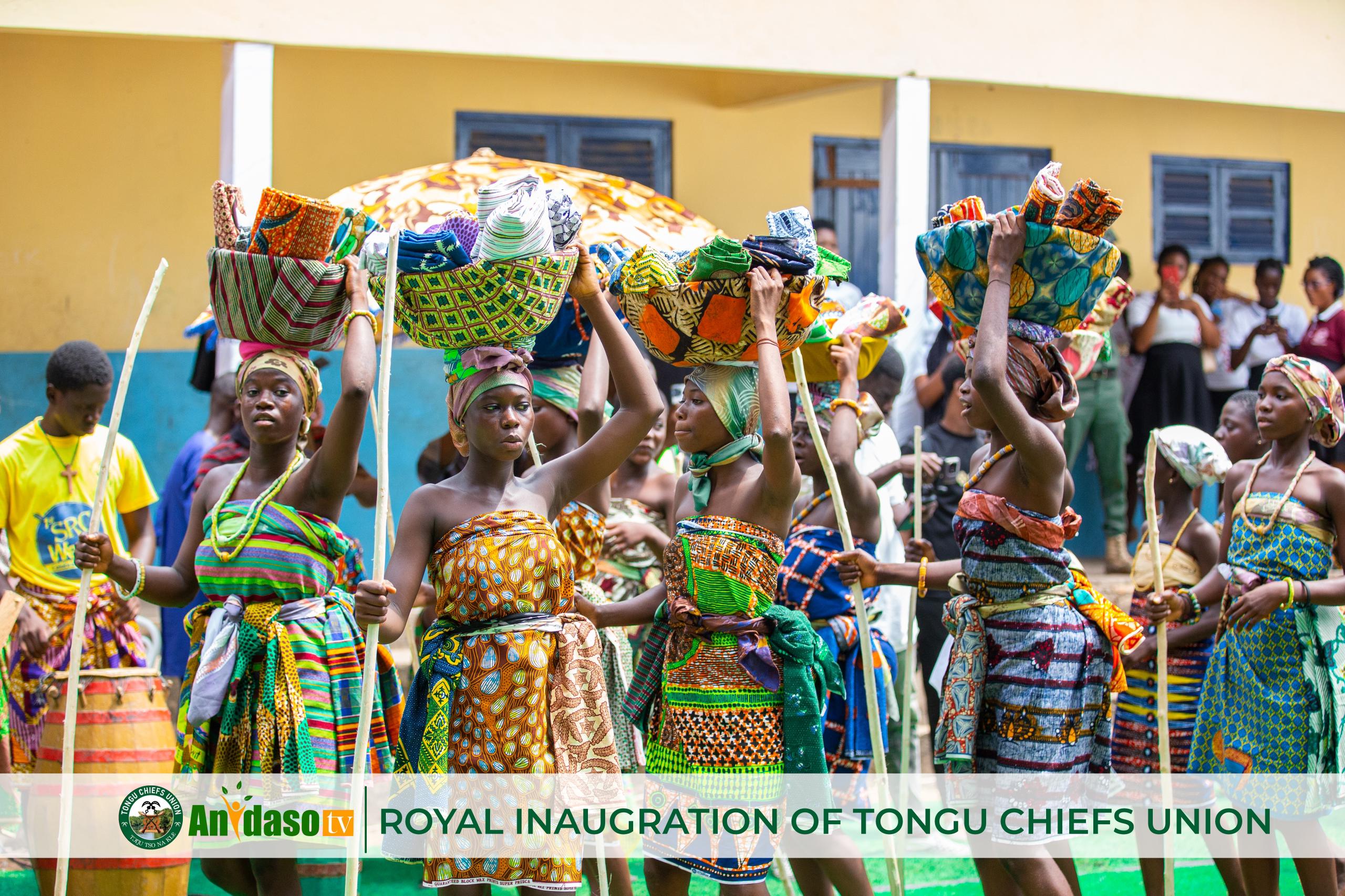The Tongu people, an Ewe-speaking community, reside in the southern Volta Region of Ghana. The name “Tongu” originates from the Ewe words ‘tor’ (river) and ‘ngu’ (near), translating to “near the river.” This name aptly describes the Ewe inhabitants living along the Volta River, where fishing and farming have traditionally been their primary occupations, especially before the construction of the Akosombo Dam.
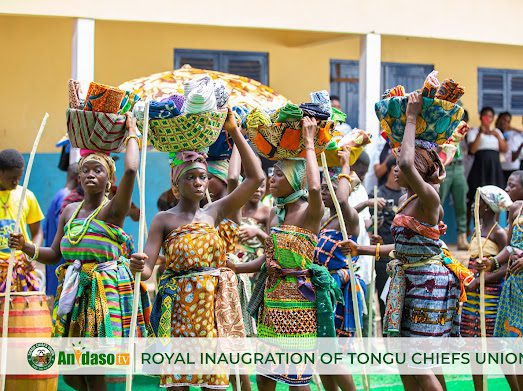
Migration and Settlement
The Tongu people are believed to have originated from the Dawlotu family of the Ewe people who migrated from Notsie in the Republic of Togo. Their migration led them to settle along the Volta River, which provided a conducive environment for their main economic activities. The construction of the Akosombo and Kpong dams significantly impacted their traditional way of life, leading to ecological changes that forced many Tongu fishermen and their families to migrate from the Lower Volta to the newly formed Volta Lake. This migration required continuous negotiation with host communities and the Volta River Authority for access to land and fishing rights.
Language and Culture
The Tongu people possess a unique linguistic heritage. Their dialect, while distinct from their immediate neighbors, is closely related to the Kpalime language of Togo, reflecting their historical and geographical connections to various Ewe subgroups. Culturally, the Tongu people celebrate numerous festivals that highlight their rich traditions and foster communal unity. Notable festivals include Tsitsoryi celebrated by the people of Aveyime, Ayimagonu by the people of Dorfor, and Hogbeza by the people of Battor. These festivals serve as unifying events that mobilize resources for community development.
Geography and Economic Activities
Geographically, the Tongu region spans approximately 2,291 square kilometers, encompassing thirteen traditional areas: Mafi, Agave, Fievie, Bakpa, Sokpoe, Tefle, Mepe, Battor, Volo, Doffor, Vume, Fodzoku, and Torgorme. The largest among these is Mafi, followed by Agave and Fievie. Major towns in Tongu include Adidome, Sogakope, Mafi Kumase,Juapong, Battor, Mepe, Aveyime, Dove, Vume, Tefle, Sokpoe, Dabala, and Agave.
Watch here:
The Tongu people’s primary economic activities have traditionally been fishing and farming. The fertile lands along the Volta River support various agricultural activities, which remain central to the local economy. However, the construction of the Akosombo and Kpong dams transformed their livelihoods from being organized around the seasonal flooding of the Volta River to lakeside fishing, a predominantly male-dominated activity. This shift had significant implications for women’s autonomy in their economic activities.
Administration and Politics
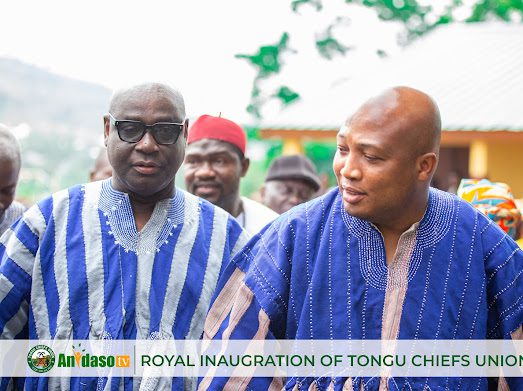
Administratively, the Tongu region was initially a single district with Sogakope as its capital. In 1989, the district was divided into North and South Tongu Districts, and later, in 2012, further divided into South Tongu, Central Tongu, and North Tongu. South Tongu, with Sogakope as its capital, covers a total land area of 643.57 square kilometers. Central Tongu, with Adidome as its capital, spans 682.22 square kilometers, and North Tongu, with Battor as its capital, covers 1,131.64 square kilometers. These administrative divisions have facilitated localized governance and development.
In 2022, the Tongu Chiefs Union was established to unite all chiefs within the thirteen traditional areas for development purposes. Led by Togbe Ga Kadzi Zoga III and Togbe Kokloko Titriku XIII, the union aims to promote unity and development across the Tongu districts. Traditional authorities play a significant role in fostering development by supporting the District Assembly in revenue and human resource mobilization during communal labor.
The religious landscape of the Tongu people is a blend of traditional beliefs and Christianity. Traditional religious practices are deeply rooted in the community, with various deities and ancestral worship playing a crucial role in their spiritual lives. Festivals and cultural ceremonies often incorporate religious elements, reflecting the people’s reverence for their traditions.
In the realm of creative arts, the Tongu people are known for their vibrant cultural expressions, including music, dance, and storytelling. These art forms are integral to their festivals and communal gatherings, serving as a means of preserving their heritage and passing it down to future generations.
The history of the Tongu people is a rich tapestry of migration, cultural heritage, economic adaptation, and administrative evolution. Their unique linguistic and cultural identity continues to play a crucial role in the development and unity of the Tongu Districts in the Volta Region. Despite the challenges posed by ecological changes and modern development, the Tongu people have demonstrated resilience and adaptability, ensuring the preservation and growth of their vibrant community.
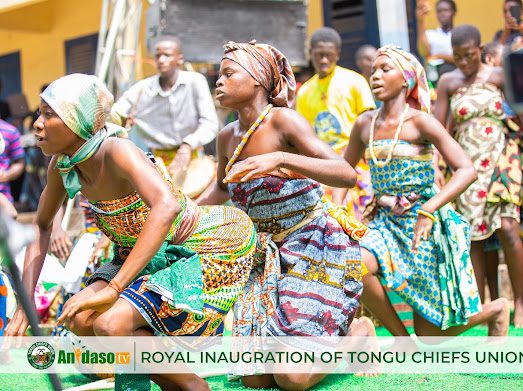
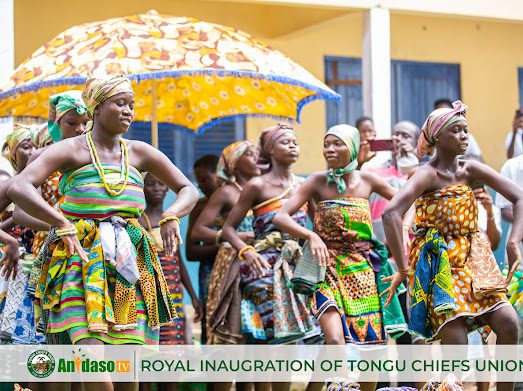
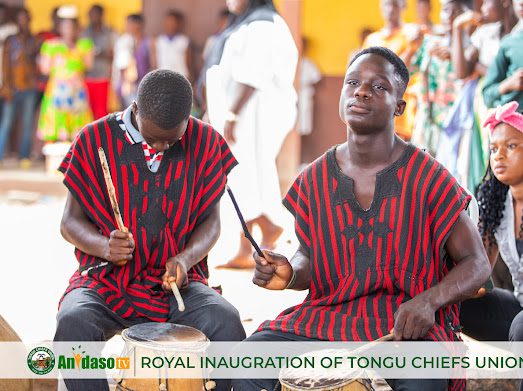
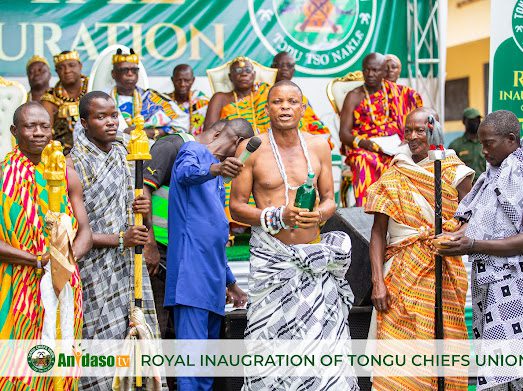
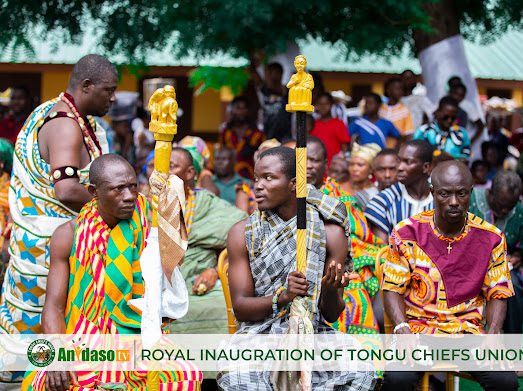
Picture Credits to: Anidaso Tv [ Bra Lyrix]
